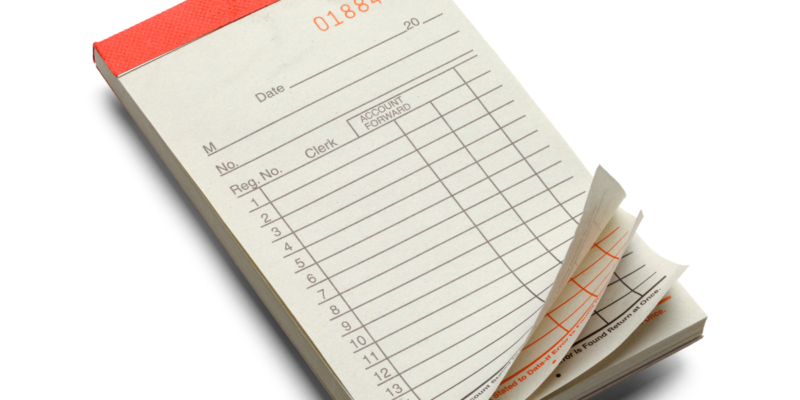
In the world of business, efficiency and accuracy in financial transactions are paramount. Among the myriad documents facilitating smooth operations, receipt vouchers are crucial instruments. Whether in traditional brick-and-mortar stores or the realm of e-commerce, receipt vouchers play a vital role in documenting transactions, providing proof of purchase, and maintaining transparent financial records. In this article, we delve into the significance of receipt vouchers, their various forms, and their importance in ensuring financial integrity.
Understanding Receipt Vouchers
Receipt vouchers, often referred to simply as receipts, are documents issued by a seller to a buyer upon completion of a transaction. They serve as tangible evidence that a purchase has been made and payment has been received. Receipt vouchers typically include details such as the date of the transaction, the names and addresses of the buyer and seller, a description of the items or services purchased, the quantity or duration of the purchase, the unit prices, the total amount paid, and any applicable taxes or discounts.
Forms of Receipt Vouchers
With the rise of e-commerce, traditional paper receipts are increasingly being replaced by digital receipts or e-receipts. Digital receipts offer several advantages over their paper counterparts, including convenience, accessibility, and environmental sustainability. E-commerce platforms and retailers often send digital receipts via email or provide access to them through customer accounts, allowing buyers to easily track their purchases and access proof of purchase whenever needed.
Electronic Point of Sale (EPOS) Systems:
In brick-and-mortar stores, electronic point of sale (EPOS) systems have revolutionized the way receipt vouchers are generated and managed. EPOS systems automatically generate receipts at the time of purchase, eliminating the need for manual entry and reducing the risk of errors. These systems also offer additional features such as inventory management, sales reporting, and customer relationship management, making them indispensable tools for retailers seeking to streamline their operations and enhance customer experience.
Importance of Receipt Vouchers
Receipt vouchers play a crucial role in ensuring transparency and accountability in financial transactions. By providing a documented record of every purchase and payment, receipt vouchers help businesses track revenue, monitor cash flow, and reconcile accounts accurately. In cases of disputes or discrepancies, receipt vouchers serve as concrete evidence that can help resolve issues swiftly and amicably.
Compliance with Legal and Regulatory Requirements:
In many jurisdictions, businesses are legally required to issue receipt vouchers for certain types of transactions, particularly those involving the sale of goods or services to consumers. Compliance with these regulations is essential to avoid penalties, fines, or legal consequences. Additionally, receipt vouchers may be required for tax purposes, serving as documentation for deductible business expenses or input tax credits.
Building Trust and Enhancing Customer Experience:
For businesses, providing receipt vouchers is not just a matter of compliance; it’s also an opportunity to build trust and enhance customer experience. Receipt vouchers reassure buyers that their transactions have been processed accurately and that they have proof of purchase in case of returns, exchanges, or warranty claims. By investing in clear and professional receipt vouchers, businesses can convey professionalism, reliability, and attention to detail, thereby fostering customer loyalty and satisfaction.
Best Practices for Receipt Vouchers
Ensure Accuracy and Completeness:
Accuracy and completeness are paramount when it comes to receipt vouchers. Ensure that all relevant information, such as the date, transaction details, and payment amounts, is accurately recorded on the receipt. Double-check calculations and verify the accuracy of item descriptions to avoid confusion or disputes later on.
Maintain Consistency and Branding:
Receipt vouchers are not just transactional documents; they’re also reflections of your brand identity and professionalism. Maintain consistency in the design and layout of your receipt vouchers, incorporating your company logo, colors, and branding elements. This helps reinforce brand recognition and leaves a positive impression on customers.
Offer Options for Digital Receipts:
In today’s digital age, offering options for digital receipts can enhance convenience for customers and reduce paper waste. Provide customers with the choice to receive receipts via email or access them through their online accounts. Ensure that digital receipts are securely delivered and easily accessible, with clear instructions on how to retrieve or print them if needed.
Archive Receipt Vouchers Securely:
Receipt vouchers are valuable documents that should be archived securely for future reference. Implement robust systems for storing and organizing receipt vouchers, whether in physical or digital form. Maintain backups of electronic receipts and establish protocols for retrieving and accessing archived receipts as needed, particularly for accounting, auditing, or compliance purposes.
Conclusion
In the intricate tapestry of business operations, receipt vouchers serve as indispensable threads that weave together transactions, financial records, and customer relationships. Whether in traditional retail environments or in the digital realm of e-commerce, receipt vouchers play a vital role in documenting purchases, ensuring transparency, and fostering trust. By understanding the significance of receipt vouchers and implementing best practices for their issuance and management, businesses can streamline their operations, enhance customer experience, and uphold financial integrity in an ever-evolving marketplace.










